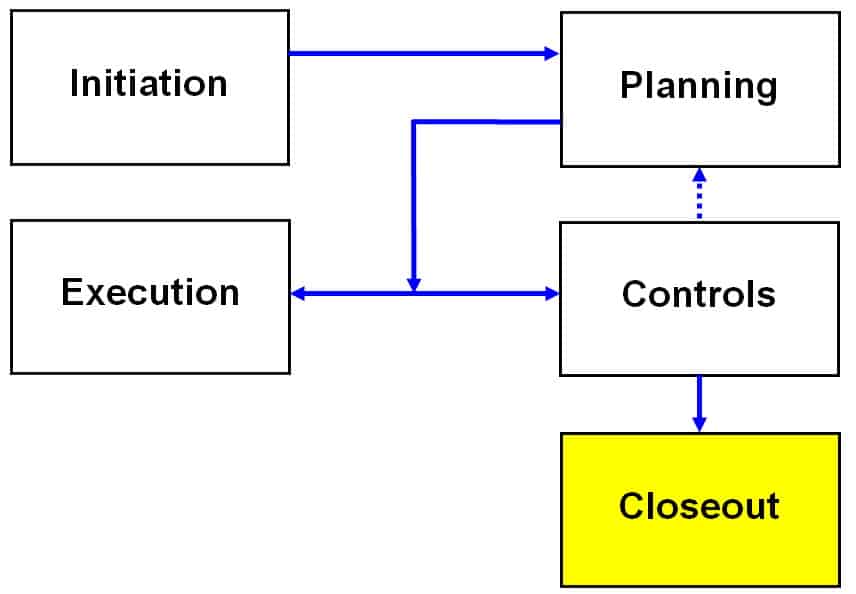Projects: Project Closeout and Organizational Structures


Project Closeout Checklists
1. Submit Final Deliverables to the Customer:
- Check your scope, statement of work, and project plan one last time.
- Deliver reports, other work products (electronic and hardcopy); warranties of materials and workmanship; operation and maintenance manuals; training; release of liens if applicable.
- Consider holding a presentation or closeout meeting.
- Deliver the final project status report.
- Transmit the final invoice.
2. Internal Checklist for Closeout
- Review final timesheets, expense accounts, bills, in-house charges, etc.
- Close entire project to cost accrual.
- Conduct an internal presentation or closeout meeting.
- Compare electronic and hardcopy files to the file plan.
- Properly archive the electronic and hardcopy files.
- Pay subs and vendors.
- Collect final payment from the customer.
- Conduct customer survey (get a nice letter if you can).
- Solicit additional work or other types of work from customer.
- Begin to scope follow-on work as a new project.
- Discuss and document lessons learned internally or with customer.
- Use project as an internal training opportunity (lessons learned).
- Prepare project synopsis for company files and/or future marketing; distribute.
Organizational Issues
1. The resources promised to you may start to disappear when company departments become busier than anticipated.
Your bosses or co-workers may:
- have hidden agendas counter to the project goals and objectives
- not understand the customer or his requirements
- assign you to manage a proposal or project that was not well planned, scoped, budgeted, or staffed
- want to use improper in-house resources when overtime or a sub or vendor is indicated
2. Unfortunately, organizational politics and constraints can have large negative impacts on project success. You cannot allow these issues to be detrimental to your project. As soon as you suspect these types of issues exist, begin to discuss the situation with someone in the company who truly wants the project to succeed, and who has enough clout to help. Rather than present just a problem however, present the problem, the impact, and more than one possible solution.
3. Resistance to change – change can be painful, but is often better than the alternative (losing profit, market share, key employees).
4. If you identify opportunities for organizational improvement during the project, take your suggestions to the quality department, or in the absence of a quality department, a senior manager who understands the advantages of quality improvement initiatives.
Functional Organization
Most American companies seem to follow this organizational structure. The project manager does not supervise, or sometimes even get to choose the project team. Negotiate during project planning for the best team you can obtain, the amount of availability, and get the commitments from department managers, even if only by e-mails to confirm your conversations. Propose to management that project managers should complete annual performance review forms on the project team members.
Projectized Organization
The drawback to this organizational structure is, the technical team members may be junior or mid-level, and cast adrift without technical direction. Therefore, I added a column under the heading of quality, where the senior technical experts reside, and are expected to provide technical oversight to all projects (they may only be part time in these roles, but the job position needs to exist to ensure technical integrity).
Next Article in This Series: The next article presents ideas about computers and documents as they relate to projects.
Category: Business Growth & Strategy
Tags: Projects



